What We Do
Individual Development

Five Behaviors of a Cohesive Team
Five Behaviors of a Cohesive Team
The modern workplace presents many challenges, including a constantly changing environment, and individuals must possess both flexibility and relationship skills to overcome these obstacles. For an organization to be successful, cultivating a culture of effective teamwork is crucial. Although this process takes time and effort, improved productivity, increased innovation and greater job satisfaction make the process worthwhile. When people learn and practice teamwork skills, they thrive in their roles and contribute to the success of the organization.
In order to achieve effective cooperation, it is important for individuals to understand how their personalities shape their behaviors. By acknowledging and recognizing the natural tendencies that can cause barriers to teamwork, people can work on developing the discipline required to overcome these obstacles. By doing so, they will be better equipped to collaborate and achieve their goals as a team and as an organization.
PMA Philadelphia offers The Five Behaviors Personal Development, a powerful virtual or in-person experience that assesses an individual’s approach to teamwork, provides personalized insights on how they can work with others more effectively, and teaches participants the critical behaviors and interpersonal skills needed to cooperate and collaborate. The result is a unique and impactful team development solution that empowers individuals to rethink their approach to teamwork, shape new, more productive behaviors to increase productivity, and create a common language that completely redefines what it means to work together to build a culture of teamwork.
By the end of this program, participants will learn:
- The foundational principles for building a cohesive team based on The Five Behaviors model: Trust, Conflict, Commitment, Accountability, and Results.
- How their unique personalities influence their behaviors and the discipline required to overcome barriers caused by natural tendencies that make effective teamwork so elusive.
- The critical behaviors and interpersonal skills needed to be effective team players on any team.
- How their individual styles contribute to a team’s overall success.
Who Should Attend?
Any employee at all levels of an organization, including managers or team leaders.

Contributing to High-Performance Teams
Contributing to High-Performance Teams
Now that virtual teams and a multi-generational workforce are the new reality, leaders and managers must appreciate and understand how that impacts their team dynamic. These days, things change quickly and often. As teams grow and shift, individuals may feel unsure about their role on the team, the purpose of the team or which processes they should focus on.
In any industry, achieving the highest level of performance as a team requires the contribution of multiple skills and experiences. It is a by-product of effective team leadership and individual team member commitment. Team building and motivational skills are crucial to the effective day-to-day functioning of not only a given team, but to the success of the organization. Strong teams are creative, prioritize, adapt quickly and, most importantly, get things done.
PMA offers Contributing to High-Performance Teams, a full or half-day program that utilizes a unique simulation that rapidly replicates team dynamics. After the simulation, participants reflect on their interactions and look for places where they might improve their opportunities to contribute to the team. We’ll help you learn the process of effective team building, develop quality-driven project teams, and practice the art of being a valued member of virtual teams.
By the end of this program, participants will obtain the skills necessary to:
- Assess the effectiveness of the team.
- Collaborate to increase team productivity.
- Improve team’s overall “IQ”.
- Clarify roles and learn the value of their contributions.
- Implement action plans to elevate team participation.
- Align the team around specific goals.
- Establish clear lines of accountability and responsibility for team members.
- Build effective working relationships through effective communication skills.
- Identify common mistakes and solutions to challenges in teams.
Who should attend?
This program is for team members (at all experience levels) who want to help their leaders build effective teams and achieve synergy. It is especially recommended for those who are facing the challenges of being a valued member high-performance teams in a global environment.

Handling Conflict
Handling Conflict
Conflicts are an inevitable part of human interaction, and everyone experiences them in one form or another. By understanding your personal conflict style, you can gain insight into the ways you react to and handle conflicts, which can then help you to better manage them in the future. It is imperative that individuals identify any negative patterns in their conflict styles and learn new techniques for resolving conflicts in more positive and productive ways. We all have our own ways of managing conflict but the ones we are most comfortable with may be overused and are not always appropriate.
Most often, programs on conflict are sought out only after conflict arises. PMA’s approach to workplace conflict focuses on preparation in advance of conflict which is a key competency in managing it. Leaders with the forethought to proactively manage relationships and communications in their team can minimize barriers to their team’s success.
PMA Philadelphia offers Handling Conflict, a program where participants are exposed to the 5 Conflict Management Styles of the Thomas-Kilmann Conflict Mode Instrument (TKI). Utilizing case studies and the TKI assessment, participants learn a variety of approaches to resolution and gain a better understanding of their natural inclination in conflict. They learn which styles and strategies are appropriate a given situation and are given time to practice them. With tools to help individuals in a variety of settings successfully manage conflict, this program also focuses on preparation as a best practice and offers participants both resolution and prevention strategies.
By the end of this program, participants will be able to:
- Identify their conflict style and frequency of use.
- Implement a conflict resolution process for their team.
- Select the appropriate communication style based upon the nature of the situation and the people involved.
- Distinguish and avoid common conflict triggers.
- Move a colleague from a defensive to open position.
- Practice applying the techniques with different styles of people in a supporting, learning environment.
- Manage their own emotions and responses during conflict conversations.
- Obtain tools and techniques that help prevent, manage and resolve conflicts.
Who Should Attend:
This course is designed for individuals looking to learn new and powerful techniques to strengthen their response to conflict.

Influencing for Impact
Influencing for Impact
The ability to influence without force or coercion is important in any organization and at all levels. Modern workers must be able to master the art of persuasive communication, adapt to the needs of the audience and inspire others to act. Those able to influence others can effectively move ideas into action.
In highly collaborative environments, especially those with “flat” leadership structures, influencing skills will always supersede the use of positional power. Every interaction with another person determines how you are perceived, and every interaction is an opportunity to develop trust and exert positive influence. A successful influencer develops practical yet powerful techniques to positively influence and persuade their colleagues, employees, and superiors.
PMA Philadelphia offers Influencing for Impact, a full-day program that provides the opportunity to learn and practice some of the most impactful ways to help people align with your ideas while leaving them feeling good about the encounter, every time. We’ll help you understand your influencing style and create a collaborative environment of open communication and trust.
By the end of this program, participants will obtain the skills necessary to:
- Persuade people without commanding or demanding.
- Create genuine empathy between people.
- Get people to do what they said they would do.
- Handle objections and resistance with ease.
- Establish an advantage in during times of confrontation.
- Improve the odds of success in every interaction.
Who Should Attend?
This course is designed for leaders, managers, team members, and individual contributors who need to interact, collaborate, and make decisions with others to achieve their goals.

The Skilled Communicator
The Skilled Communicator
Today, work is more intricate and collaborative than it was just a few years ago. That makes the need for clear communications that generate the desired impact, mission critical. Knowing how to connect well with others is what keeps co-workers and leaders engaged, productive, and united. Skilled communicators know how to build the safe spaces, grounded in community and collaboration, that are critical to achieving success.
A successful communicator will understand their own communication style, be able to identify the styles of others, and recognize when and how to adapt their style. These skills, along with a willingness to listen empathetically, will result in a greater ability to exercise choice and control in every type of conversation, influence without authority, and improve the quality of relationships and productivity.
PMA Philadelphia offers The Skilled Communicator, a half-day or full-day program that takes the guesswork out of understanding your colleagues while building strong working relationships with them. We’ll help you develop these skills by understanding behavioral communication concepts that create a collaborative environment where open communication and trust are fostered.
By the end of this program, participants will be able to:
- Define the conditions that allow the most influential to people get ahead.
- Specify the reasons many people have difficulty truly connecting with others.
- Establish more productive business relationships.
- Recommend techniques for keeping the people around them “tuned in”.
- Develop those tough relationships so they don’t hold you back.
- Evaluate other people and understand how they will respond before you say a word.
- Adopt new and innovative ways to adapt their communication approach to successfully influence and motivate their coworkers.
- Utilize the Everything DiSC Assessment as a core ingredient to improve leadership, management/supervisory skills and communication.
Who Should Attend:
This course is designed for leaders, managers, team members, and independent contributors who need to interact, collaborate, and make decisions with others to achieve their goals.

WorkingSm@rt + Outlook
WorkingSm@rt + Outlook
In these days of virtual and multi-generational teams, how we process our work is more complex and collaborative than ever before. Each day, we respond to massive amounts of information, requests, communication, and priorities. Many people find themselves working in “reactive mode” all the time and feeling that they lack control while stress levels increase.
“Workload management” refers to the way we respond to the work and personal priorities we face each day. A more collaborative, fast moving, and diverse workplace means that the workload management behaviors, processes, and tools we used to rely on may no longer serve us. The “game” has changed so the ways we manage the volume and complexity of work must change as well.
PMA Philadelphia offers WorkingSm@rt + Outlook, a complete time and workload management method designed to help busy people take control of their day and enhance their productivity and performance. The WorkingSm@rt method utilizes a flexible and practical combination of behavior-changing methods, best practice tools, and processes that can transform the way you work. Gain control over your day, find balance, reach your goals, and focus on the tasks that are important to you and your organization.
By the end of this program, participants will obtain the skills necessary to:
- Control their email inbox and other sources of digital clutter.
- Think and work more proactively.
- Eliminate the nagging sensation that something must be “falling through the cracks”.
- Manage a large volume of action items from a variety of sources.
- Plan and prioritize tasks in an environment of shifting priorities.
- Recover more quickly from interruptions.
- Store and retrieve information quickly and efficiently.
- Work more productively and effectively within a team.
- Link actions to long and short-term strategies.
- Distinguish the important from the urgent and incorporate high-value strategic tasks into their daily plan.
Who should attend?
WorkingSm@rt + Outlook is for individuals or entire workgroups including managers, technical and sales professionals, supervisors, administrators, and project leaders who currently use Outlook and are search for a way to maintain or elevate their productivity in the face of constantly increasing workloads.

WorkingSm@rt + OneNote
WorkingSm@rt + OneNote
Much of the information you work with every day probably gets stored electronically in some way: you save appointments, meetings, and contacts in Outlook, and you likely manage lists and other key data in an Excel worksheet or Word table. But how do you manage the information that doesn’t have a natural place to live?
Before laptops, tablets, and smartphones, we had to take notes, keep minutes and store a variety of information in paper notebooks. But times have changed and in the age of digital communication, we’ve traded in our paper notebooks and have upgraded to a digital one. OneNote is a digital notebook that allows you to create, maintain, share, edit, and review notes on your computer or mobile device.
PMA Philadelphia offers WorkingSm@rt + OneNote, a program that demonstrates how to use OneNote as a tool to supplement Outlook and take your capture, organization and retrieval of information to the next level. Some people already use Outlook as a tool to help track their activities and appointments, and to store information for easy retrieval. Learning to apply WorkingSm@rt’s information and communication management techniques to OneNote will expand the range of options available for organizing work, taking free-form notes, capturing images, and linking information between projects and people.
By the end of WorkingSm@rt + OneNote, participants will:
- Adopt OneNote as a vital part of their workload management system.
- Select the right OneNote functionality for each situation and enhance efficiency and effectiveness.
- Integrate OneNote with Outlook and their overall workload management system.
- Enhance collaboration on projects and within teams by using OneNote as a shared resource.
- Practice “Day in the Life” simulations that highlight best practices in note taking, planning and brainstorming.
Who should attend?
WorkingSm@rt + OneNote is perfect for those who need to track and plan communications as a large part of their workday. People who work closely with internal and external partners on projects that require high levels of collaboration, and those rolling out initiatives and projects that require detailed planning, frequent meetings and copious note taking will also see a significant benefit from the WorkingSm@rt + OneNote techniques.

Developing Your Emotional Intelligence
Elevate your professional development with our 2-hour virtual program, “Developing Your Emotional Intelligence”. It is tailored to equip professionals with essential skills to navigate emotions effectively, enhance workplace relationships, and achieve greater career success.
WorkingSm@rt + OneNote
Elevate your professional development with our 2-hour virtual program, “Developing Your Emotional Intelligence”. It is tailored to equip professionals with essential skills to navigate emotions effectively, enhance workplace relationships, and achieve greater career success.
In this program, you’ll explore why Emotional Intelligence is a crucial factor in professional environments, learning how it can improve decision-making, enhance team dynamics, and boost leadership effectiveness. We’ll dive into the core EQ skills: self-awareness, self-management, social awareness, and relationship management. You’ll gain insights into recognizing and understanding your own emotions, controlling and channeling them productively, empathizing with colleagues, and building stronger professional relationships through effective communication and conflict resolution.
You’ll also learn practical strategies to enhance your EI in the workplace. We’ll guide you through assessing your current EI skills, identifying areas for growth, and adopting a growth mindset for continuous professional development. Additionally, you’ll be equipped with techniques to prepare for and handle emotionally charged workplace situations with confidence and effectiveness. By the end of the program, you’ll have the tools and knowledge to transform your professional interactions, relationships, and overall career success.
By the end of this program, participants will obtain the skills necessary to:
- Understand the importance and impact of Emotional Intelligence in your daily experience.
- Develop greater self-awareness to recognize and understand your own emotions in the workplace.
- Implement self-management techniques to control and direct your emotional responses under stress.
- Enhance social awareness skills to better empathize with and understand colleagues and clients.
- Improve relationship management abilities for more effective communication and conflict resolution.
- Identify personal strengths and areas for improvement in EI related to your career.
- Plan and prepare for handling high-stakes emotional situations effectively in the workplace.
Who should attend:
This course is designed for leaders, managers, team members, and individual contributors who are looking to boost leadership capabilities, improve team interactions, or simply develop emotional intelligence for greater success.

